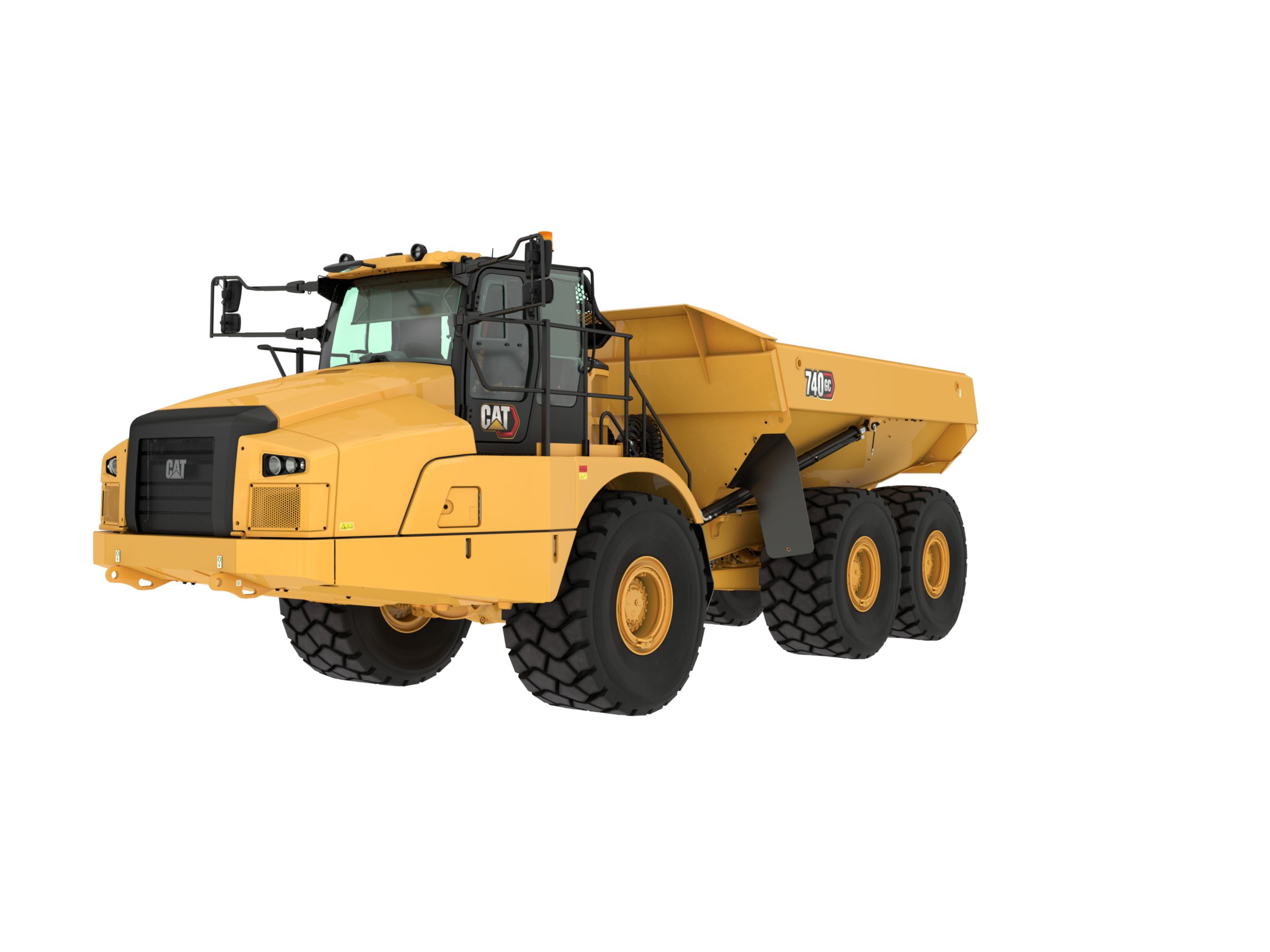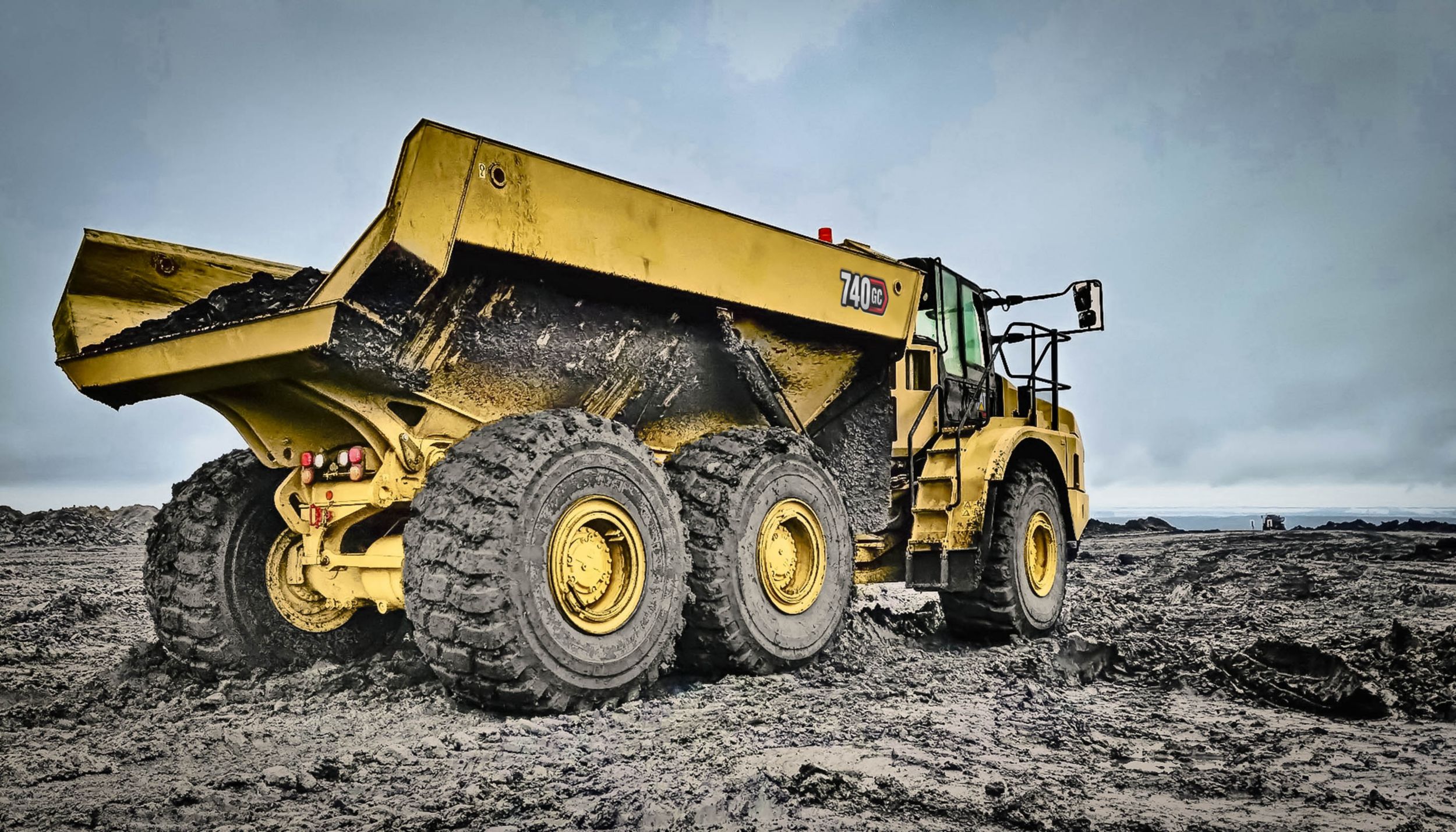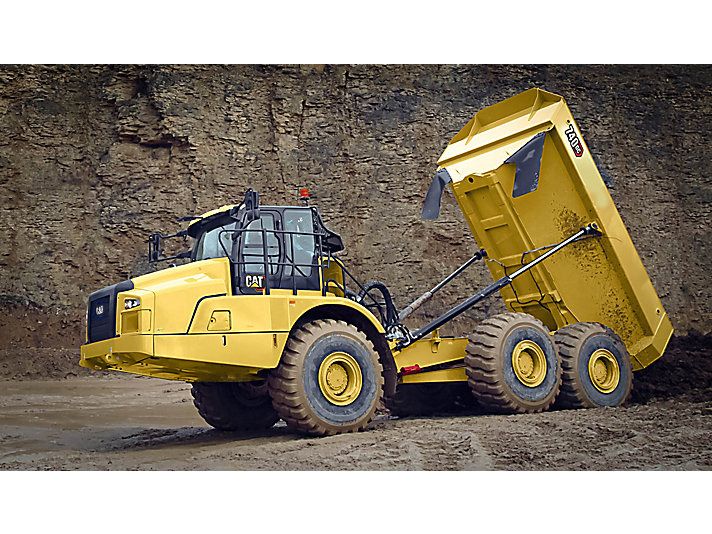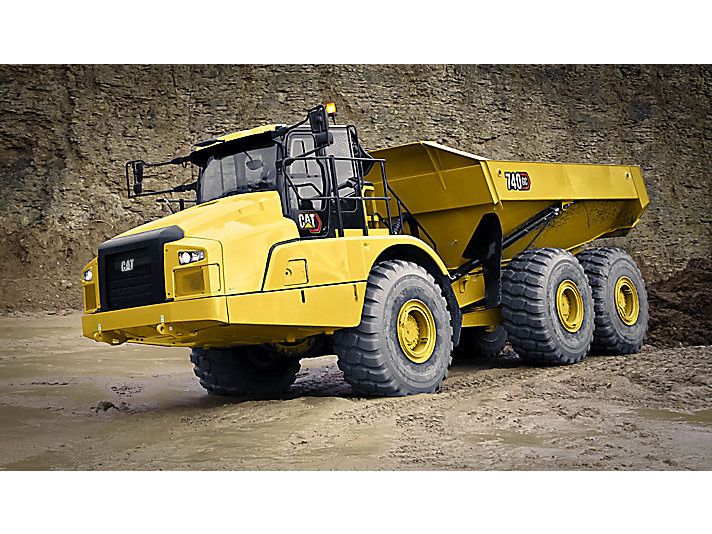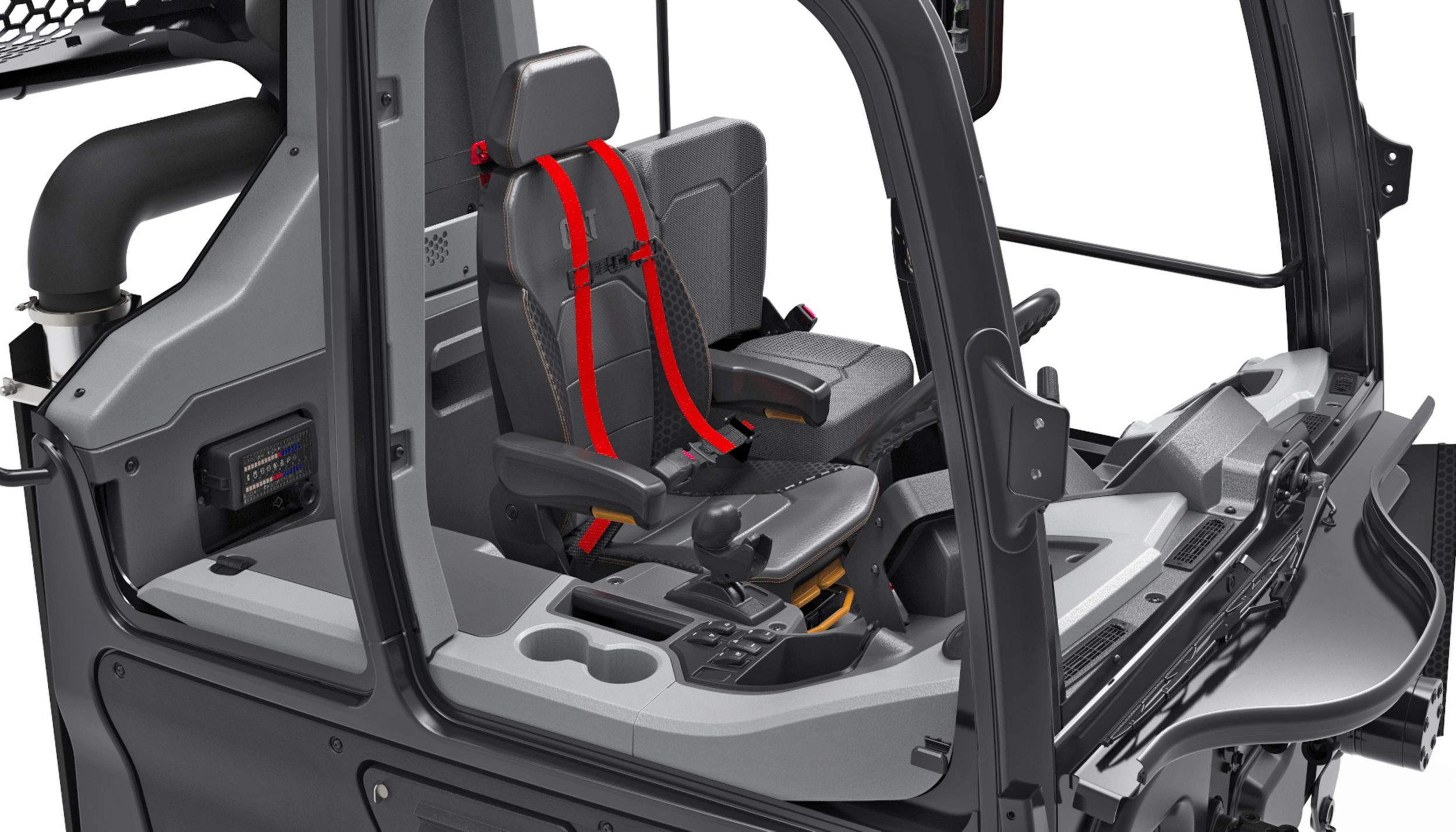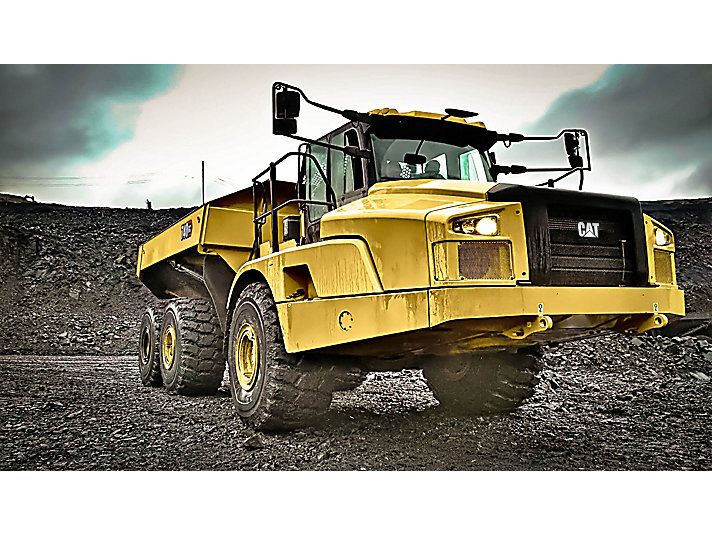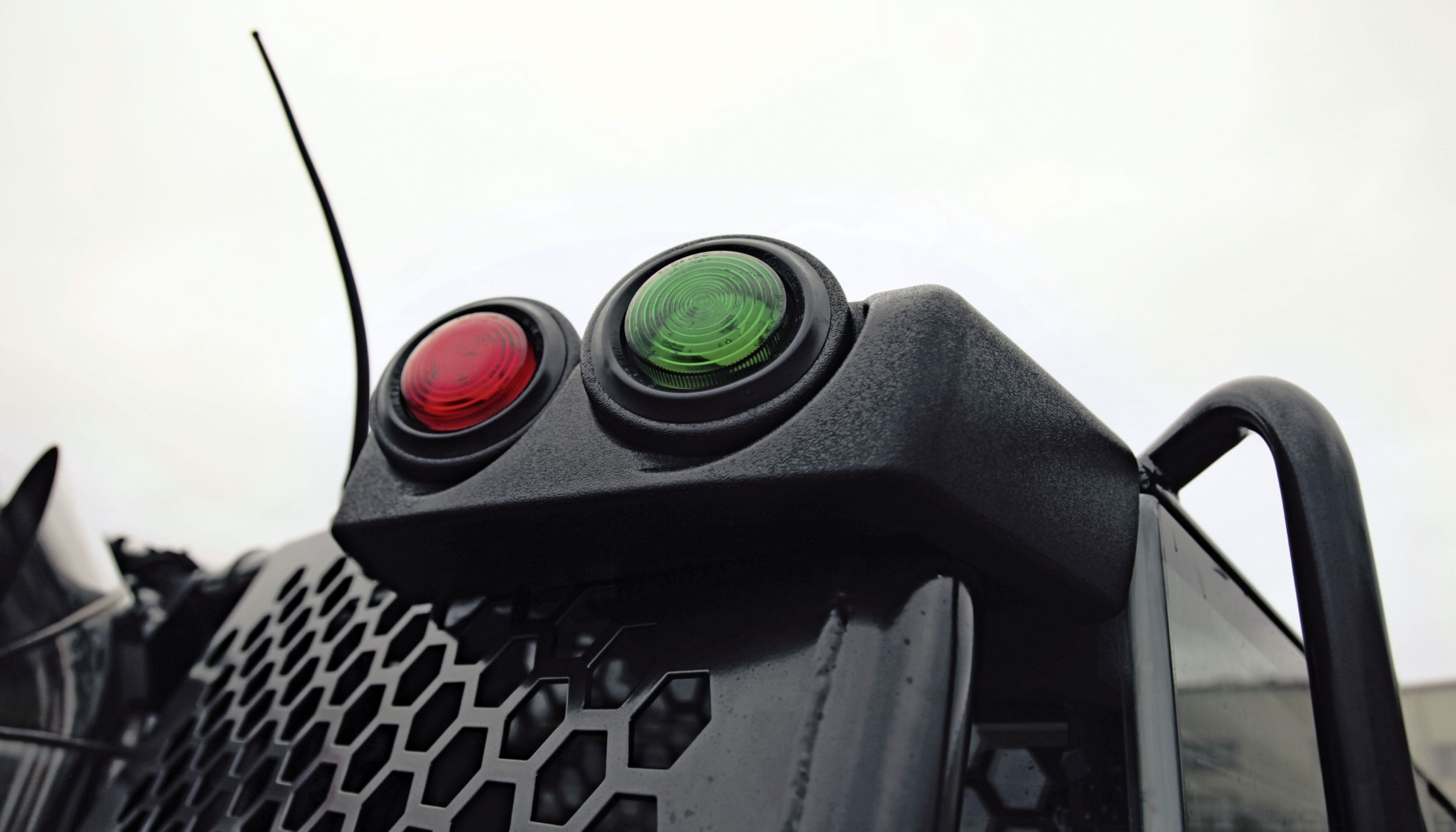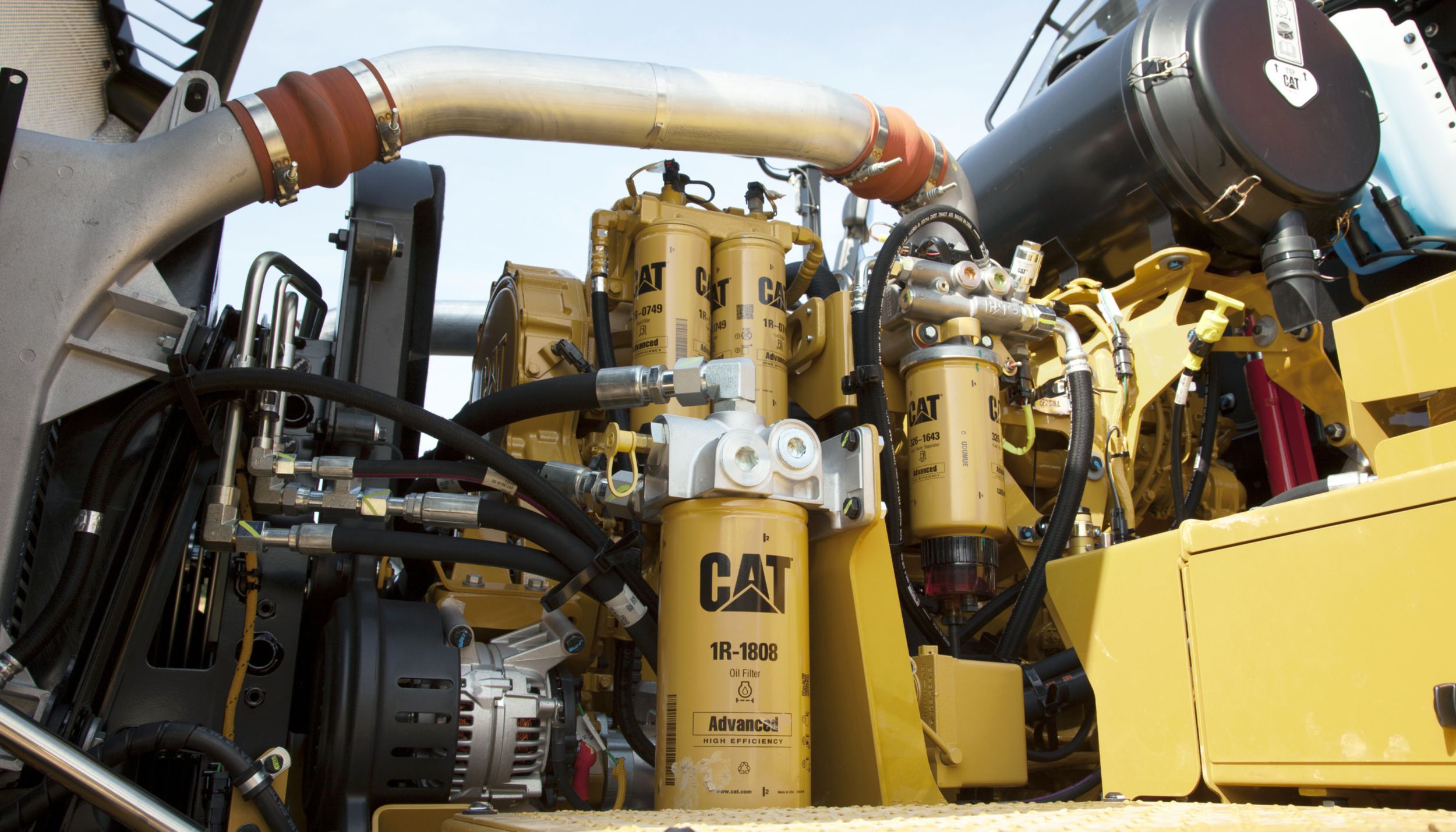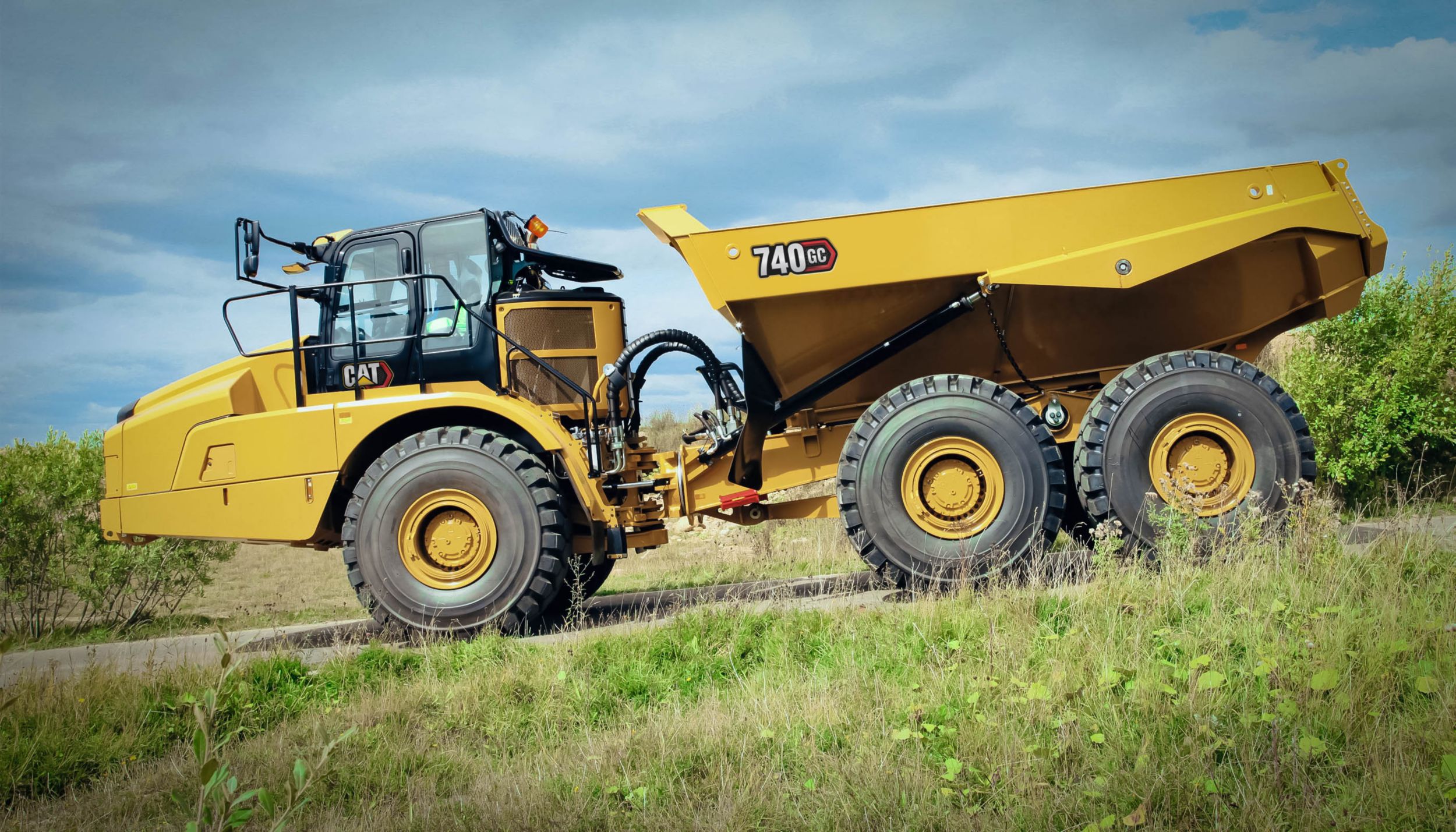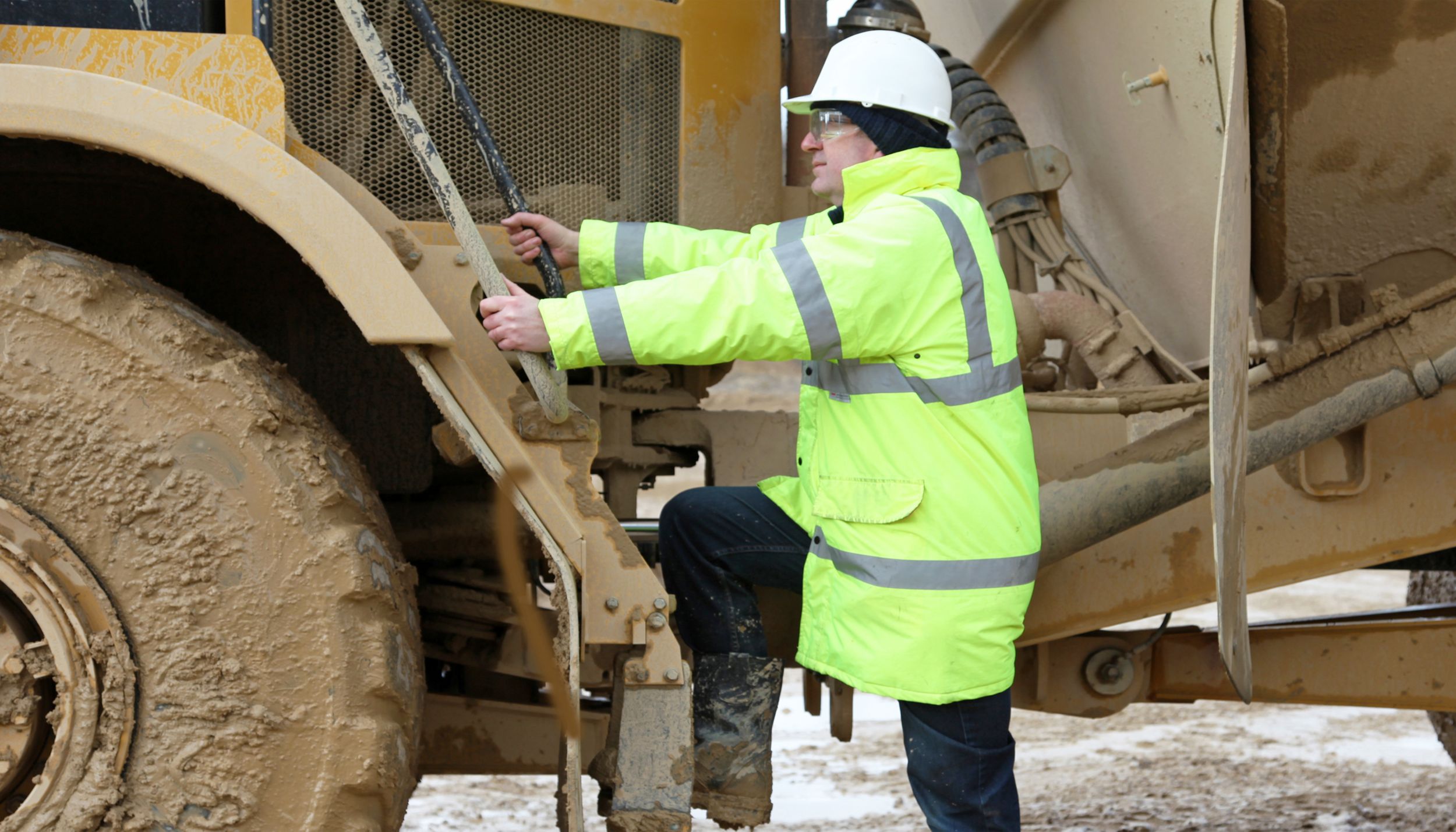Overview
The Cat 740 GC with a 22.7 m³ (29.7 yd³)/36.3 tonne (40 ton) capacity, offers reliability, durability and efficient performance, including the latest, world-class operator’s station found on other Cat Articulated Trucks. The 740 GC offers a highly efficient value proposition within the 40 ton AT size class. Automated, assisted and intuitive controls bring Safety and Ease of Operation to the forefront – helping reduce operator workload and training. Ideally matched to popular loading tools, the 740 GC is a productive machine in any fleet.
Specifications
Units:
| Engine Model | Cat® C15 |
| Rated Payload | — |
| Heaped (SAE 2:1) | — |
Benefits & Features
June 20, 2025
Specifications
Units:
| Engine Model | Cat® C15 |
| Gross Power - SAE J1995:2014 | — |
| Net Power - SAE J1349:2011 | — |
| Net Power - ISO 14396 | — |
| Bore | — |
| Stroke | — |
| Displacement | — |
| Note (1) | The references to Tier 4 Final/Stage V include U.S. EPA Tier 4 Final, EU Stage V, Japan 2014 (Tier 4 Final), as well as Korea Tier 4 Final emission standards. |
| Note (2) | The power ratings apply at rated speed of 1,700 rpm when tested under the conditions for the specified standard. |
| Note (3) | The net power advertised is the power available at the flywheel when the engine is equipped with alternator, air cleaner, muffler and fan at minimum speed. |
| Note (4) | Net power when the fan is at maximum speed is 327 kW (439 hp) per the SAE reference conditions. |
| Note (5) | DEF used in Cat SCR systems must meet the requirements outlined in the International Organization for Standardization (ISO) standard ISO 22241-1. Requirements are met by many brands of DEF, including those that carry the AdBlue or API certifications. |
| No Engine De-rating Below | — |
| Peak Engine Torque Gross (SAE J1995) | — |
| Peak Engine Torque Net (SAE J1349) | — |
| Peak Engine Torque Speed | — |
| Rated Payload | — |
| Heaped (SAE 2:1) | — |
| Struck | — |
| Tailgate Heaped SAE 2:1 | — |
| Tailgate Struck | — |
| Forward - 1 | — |
| Forward - 2 | — |
| Forward - 3 | — |
| Forward - 4 | — |
| Forward - 5 | — |
| Forward - 6 | — |
| Forward - 7 | — |
| Forward - 8 | — |
| Forward - 9 | — |
| Reverse - 1 | — |
| Reverse - 2 | — |
| Interior Cab | — |
| Note (1) | The operator sound exposure Leq (equivalent sound pressure level) measured according to the work cycle procedures specified in ANSI/SAE J1166 OCT98 is 72 dB(A), for the cab offered by Caterpillar, when properly installed and maintained and tested with the doors and windows closed. |
| Note (2) | Hearing protection may be needed when operating with an open operator station and cab (when not properly maintained or doors/windows open) for extended periods or in noisy environments. |
| Front Axle - Empty | — |
| Center Axle - Empty | — |
| Rear Axle - Empty | — |
| Total - Empty | — |
| Front Axle - Rated Load | — |
| Center Axle - Rated Load | — |
| Rear Axle - Rated Load | — |
| Total - Rated Load | — |
| Front Axle - Loaded | — |
| Center Axle - Loaded | — |
| Rear Axle - Loaded | — |
| Total - Loaded | — |
| Type | High strength Brinell HB450 wear resistant steel |
| Front Plate | — |
| Base Plate | — |
| Side Plates | — |
| Fuel Tank | — |
| Cooling System | — |
| Brake Cooling Tank | — |
| Steering/Hoist Hydraulic System | — |
| Engine Crankcase | — |
| Transmission - OTG | — |
| Final Drive - Each | — |
| Axles - Each | — |
| DEF Tank | — |
| Raise Time | — |
| Lower Time | — |
| Brakes | ISO 3450 – 2011 |
| Cab - FOPS | ISO 3449 Level II – 2005 |
| Cab - ROPS | ISO 3471 – 2008 |
| Steering | ISO 5010 – 2007 |
| Turning Dimensions - Steer Angle - Left/Right | 45° |
| Turning Dimensions - SAE Turning Radius | — |
| Turning Dimensions - Clearance Radius | — |
| Turning Dimensions - Inside Radius | — |
| Turning Dimensions - Aisle Width | — |
| Note | Dimensions are for machines equipped with 29.5 R25 tires. |
| Lock to Lock | 4.75 seconds @ 60 rpm |
| Hydraulic Excavator: 374 - Passes | 3-4 |
| Hydraulic Excavator: 352F - Passes | 5–6 |
| Wheel Loader: 972 - Passes | 3 |
| Wheel Loader: 966M - Passes | 4–5 |
| Wheel Loader: 962M - Passes | 5 |
| Note | An optimum system match gives you a major productivity advantage. The 740 GC is an excellent match for the Cat 374 and 352 Hydraulic Excavators; and Cat 972, 966, and 962 Wheel Loaders. Having matched loading and hauling tools results in increased production and lower system costs per unit of volume moved. |
Benefits & Features
MAXIMIZE PERFORMANCE
- Every Tier 4 Final/Stage IV and EU Stage V Cat engine is equipped with a combination of proven electronic, fuel, air and aftertreatment components.
- Maximized uptime and reduced cost with world-class support from the Cat dealer network.
- Minimized impact of emission systems: designed to be transparent to the operator without requiring interaction.
- Delivering better fuel economy with minimized maintenance costs while providing the same great power and response.
- Advanced MEUI-C injector platforms deliver increased injection pressures and more precise fuel rates. These durable injectors enhance responsiveness while controlling soot.
- All Cat engines feature innovative air-management systems that optimize airflow and enhance power, efficiency and reliability.
- The Cat NOx Reduction System (NRS) captures and cools a small quantity of exhaust gas, then routes it back into the combustion chamber where it drives down combustion temperatures and reduces NOx emissions.
- Cat engines equipped with a Selective Catalytic Reduction (SCR) system inject Diesel Exhaust Fluid (DEF) into the exhaust to reduce NOx emissions. DEF is a precisely mixed solution of 32.5 percent high purity chemical grade urea and 67.5 percent de-ionized water.
AUTOMATIC CONTROLS
- Advanced Automatic Traction Control (AATC) proactively applies inter- and cross-axle differential locks ‘on-the-go.’ Operators are freed from this function to concentrate on driving/loading/dumping. Sensors monitor the machine and wheel speeds, enabling instant response in high rolling resistance conditions. Operation is seamless and smooth, eliminating wheel slip for maximum traction and productivity.
- Clutches are automatically disengaged when ground conditions allow, maximizing efficiency when steering or when on uneven ground.
- AATC reduces tire and driveline abuse, eliminating lost machine efficiencies caused by improper manual operation of the differential clutches and reducing the tire wear.
- Automatic Retarder Control (ARC) automates the retarder for the operator. Like AATC, a number of machine operating aspects are monitored. If required, the engine compression brake is engaged automatically to control machine speed when descending a grade. The system can help towards eliminating engine overspeed, improving safe machine operation and reducing cycle times, yet still having the flexibility of manual control if needed.
- New Assisted Hoisting Control automates the dumping function. Flick the new body raise/lower switch and the machine will apply the service brakes, switch the transmission to neutral and raise the body at the required engine rpm. Lowering the dump body is done the same way, flick the switch and the machine will lower the body and place it in float.
- Hill Assist reduces potential ‘roll-back’ on grades. If an operator stops the machine on a grade, when taking his foot off the service brake pedal, the machine will automatically hold the service brakes to prevent machine rolling backwards.
- The Waiting brake applies the service brakes when neutral gear is selected, allowing quick and easy control of the machine at the load or dump area.
HEAVY DUTY CONSTRUCTION
- All three axles promote stability using oscillating a-frames with lateral tie rods. Operate at productive speeds with confidence while virtually eliminating impact loads on truck components.
- The front suspension oscillates ±6° controlled by large-bore, low-pressure cylinders to assist in a smooth ride. An A-frame with lateral tie rod controls sideways movement and aids stability.
- The rear suspension features a walking beam and long-life suspension mounts optimizing ride and load retention.
- New fully enclosed wet disc brake systems inside of axles keeps contaminants out extending machine life and ensuring uptime.
OPERATOR COMFORT AND CONTROL
- Spacious cab delivers comfort all shift long and is 7dB quieter than prior model.
- Unique combination hoist/transmission lever is intuitive and enhances cycle times with fewer control movements.
- Trainer/passenger seat is fully padded with wide, retractable seat belt for security and comfort.
- New large side storage box is heated/cooled by the HVAC system.
- Air-suspension seat offers greater comfort, with a greater range of adjustments. Fore/aft isolation dramatically reduces vibrations and jolts. Every operator will find a adjustments to ensure comfort and control all shift long.
- Standard cooling/heating system ensures comfort in all conditions.
- Optional four-point seat belt is available to help operator stay in position and comfortable in rugged terrain.
- Integrated, wrap-around dash means all gauges and controls are easy to monitor and access. Automotive feel with Caterpillar's renowned industrial strength.
- The updated touch screen dash mounted display allows the operator to monitor and adjust various levels of machine performance and condition, as well as machine warning categories. These include configuration settings, operator and machine totals, service information, various machine status parameters, machine payload information (when fitted), stability assist, and the video feed from the rearview camera.
- Optional Bluetooth™ entertainment system allows operator to stay in hands-free phone contact.
BUILT TO PERFORM
- Box section front frame absorb is stiff to handle torque loads. Frame design decreases stress at the hitch and optimizes suspension geometry.
- Rear frame features twin-box construction minimizing stress points and enhancing service life.
- The articulating hitch provides the truck with steering articulation, and the oscillation ensures all-wheel ground contact in rough terrain.
- Field proven two-piece hitch construction features a durable cast steel head bolted to a hard wearing forged steel tube.
- Dump body design provides a large target area for consistent high-load carrying capacity increasing productivity. Diverging flow when dumping aids material flow out of the body maximizing productivity and avoiding carry-back.
- The output transfer gear distributes drive to the tractor and trailer and includes a wet clutch differential lock for optimum traction in poor underfoot conditions.
- The full power hydraulic brake system actuates enclosed, oil-immersed, multi-disc, multi-plate brakes with independent front and rear circuits and accumulators. This dual-circuit, all wheel braking system provides the braking performance required to support maximum productivity.
- The parking brake is located on the center axle in an elevated position, it is spring applied and hydraulically released.
TECHNOLOGY THAT GETS WORK DONE
- Cat Product Link wirelessly connect you to your equipment, giving you valuable insight into how your machine or fleet is performing. The system tracks location, hours, fuel usage, productivity, idle time, and diagnostic codes through the online VisionLink user interface so you can make timely, fact-based decisions to maximize efficiency, improve productivity, and lower costs.
- Cat Production Measurement brings payload weighing to the cab to help optimize job site efficiency and productivity. Operators can view real-time load weights on the integrated display and know precisely when target is achieved, while cab-mounted external payload lights on all four corners signal the loader operator when to stop, reducing the risk of machine overloading. Operators can track daily productivity from the cab, with quick access to truck payload weights, loads and cycle counts, and daily totals; or remotely via LINK technologies.
- Cat Detect with Stability Assist warns the operator if machine is approaching a pre-set angle during operation; when driving and tipping. If using the assisted hoist, the machine will stop hoisting the body and give an audible and visual warning. The system monitors angles of tractor, trailer and grade independently. This increases operator awareness of machine stability during operation. All tractor and/or trailer rollover events are logged and reported via VisionLink.
BECAUSE UPTIME COUNTS
- Caterpillar design, manufacturing and customer service help ensure peak performance and uptime.
- Long service intervals keep your machine operating.
- Lubrication points are grouped near the hitch for fast, easy routine maintenance.
- Universal joints are sealed and lubed for long life.
- Optional autolube system saves time and includes alerts via Product Link for low levels and fault codes.
- Radiator package is located behind the cab for protection and uses extended-life coolant to stretch change intervals.
- Electrical service center is located inside the cab and provides a power port, diagnostic connector and Cat Data Link connector for use with Electronic Technician (ET) software-equipped laptop computer.
- Easy access to transmission, drive shafts, hydraulic pumps and electrical and hydraulic interfaces provided with tilt-to-side cab and access panel.
- Service points are conveniently located on the left side of the engine, under the electrically raised hood.
- Complete customer support is the goal of your Cat dealership. From counsel of product selection, operating costs, operation, maintenance all the way to help with decisions on when and whether to replace or rebuild, your dealer is with you all the way.
MORE SUSTAINABLE FUTURE
- Caterpillar designs and functions with great concern for the environment.
- Cat C18 engine incorporates the Cat Clean Emission Module (CEM) to meet Tier 4 Final/Stage IV emission standards. The system uses both Ultra-low-sulfur diesel (ULSD) fuel or up to B20 bio-diesel blended with ULSD.
- All Cat C Series Articulated Trucks are designed for long lifecycles with machines using reman components and machine rebuilds to maximize use of every part, minimizing waste.
- Volume of both hydraulic and engine oil systems has be reduced meaning less waste when oils are replaced.
BUILT-IN SAFETY FEATURES
- Seat belt in use indicator (four-point seat belt available as an option)
- Operator presence detection (prevents gear engagement when operator is not seated)
- Additional mirror for front of machine visibility
- Cab mounted, wide angled, folding mirrors
- Heated mirrors (optional)
- Body raised visual indicator
- Cab integral Roll Over Protection System (ROPS) and Falling Object Protection System (FOPS)
- Electro-hydraulic secondary steering system automatically activates in forward/reverse or when stationary if low pressure is sensed and can be manually selected for machine recovery purposes
- Extensive handrails
- External electrical system disconnect switch for easy access from outside of the machine
- Fire extinguisher in-cab mounting point
- Fully raised body locking pin
- Ground level external engine fuel cut-off switch provides easy access outside of the machine
- In-cab emergency brake switch (tertiary)
- Internal and external grab handles
- LED-flashing beacon (optional)
- Maximum speed limiter
- Multiple camera compatible
- New access lights
- Rearview camera system is fitted as standard
- Reversing indicator
- Slip resistant walkways – punched steel plate
- The parking brake functions are spring applied and hydraulic released
- Cat Detect with Stability Assist
Data not available.
Standard Equipment
- NOTE
- Standard and optional equipment may vary. Consult your Cat dealer for details.
- OPERATOR ENVIRONMENT
- Heater and defroster with four-speed fan
- Mirrors: extensive arrangement for improved visibility
- Two seats both with seat belts, operator’s retractable
- Glass windows:<br>– Front, laminated and tinted<br>– Sides and rear, toughened and tinted
- Liquid Crystal Display (LCD):<br>– Alert indicator<br>– Selected gear and direction<br>– Speed or auto shift<br>– Operation and Maintenance Manual (OMM)<br>– Primary steering failure (warning)<br>– Seat belt warning<br>– Secondary steering failure<br>– Diesel Particulate Filter (DPF) regeneration filter<br>– Machine Security System (MSS)<br>– Secondary steering energy source engaged<br>– Hour meter<br>– Retarder active
- Adjustable air vents
- Machine operation monitoring system includes:<br>– Action lamp<br>– Engine oil pressure<br>– Primary steering system<br>– Left and right turn signal<br>– High beam<br>– Coolant temperature<br>– Tachometer<br>– Parking brake<br>– Fuel level<br>– Transmission oil temperature<br>– Brake system<br>– Transmission hold<br>– Hoist control<br>– Hydraulic system<br>– Charging system<br>– Transmission fault<br>– Traction control system<br>– Check engine lamp
- Storage:<br>– Cup holder<br>– Flask receptacle (under the secondary seat)<br>– Under seat storage<br>– Door pocket<br>– Behind seat storage<br>– Coat hook
- Windows (tinted) opening both sides
- Seats:<br>– Operator: fully adjustable, air suspension<br>– Trainer: padded with lap belt
- Combined gear selection and hoist control lever
- Sun visor
- Tilt and telescopic steering wheel
- Secondary steering – electro hydraulic
- Touchscreen display incorporating the rearview camera video feed
- Air conditioning with R134A refrigerant
- Windshield wiper and washer, two speed, intermittent (front)
- CAT TECHNOLOGIES
- Cat Detect with Stability Assist
- Product Link: PL631E or PL641E dependent on location and licensing agreement
- ELECTRICAL AND LIGHTING
- Batteries (two) maintenance free
- Main disconnect switch
- Remote starting receptacle (cables not included)
- Electrical system: 24-volt, 10A 24- to 12-volt converter
- Lighting systems:<br>– Cab interior<br>– Two head lamps<br>– Two width marker<br>– Two reversing<br>– Work light/cab access light<br>– Two stop/tail lights<br>– Front and rear direction indicators
- Horn
- POWER TRAIN
- Dual circuit oil immersed, enclosed brakes – all wheels
- Cat Clean Emission Module (CEM) and exhaust aftertreatment package
- Auto shift nine-speed forward and two reverse transmission
- Three axle, six-wheel drive
- Cat C15 engine
- Retarder: engine compression brake
- Differentials: standard with automatic clutched inter- and cross-axle differential locks
- SAFETY
- Rearview camera
- ROPS/FOPS cab
- Reverse alarm
- GUARDS
- Crankcase
- Front dump body spill guard, integral part of fabricated body
- Rear window
- Radiator
- Axle
- OTHER STANDARD EQUIPMENT
- S·O·S sampling valves
- Vandalism protection: lockable caps
- Mud flaps: wheel arch and body mounted with transportation tiebacks
- Tires, six 29.5 R25
- Sound suppression (only standard in Europe)
Optional Equipment
- NOTE
- Standard and optional equipment may vary. Consult your Cat dealer for details.
- OPTIONAL EQUIPMENT
- Machine Security System (MSS)
- Product Link Elite: PLE631E (satellite), PLE641E (cellular)
- Ether start
- Flashing LED beacon
- Four-point seat belt
- Cold weather start attachment
- Body liners
- Engine block heater
- Window blinds
- Cold weather coolant –51° C (–60° F)
- Heated rearview motorized mirrors
- Roof mounted High Intensity Discharge (HID) work lights
- Scissor tailgate
- Windshield wiper and washer, two speed (rear)
- Bluetooth radio stereo system
- Bare chassis (no body) standard wheel base
- Wheel chocks
- Heated/cooled seat
- Fast fuel fill
- Exhaust heated body
- Sound suppression (only standard in Europe)
- Infrared glass – high ambient cab
- Fuel additive – anti-waxing
- Bare chassis (no body) long wheel base
- Auto lube installation for automatic greasing of bearings
- Cat Production Measurement payload monitoring system
